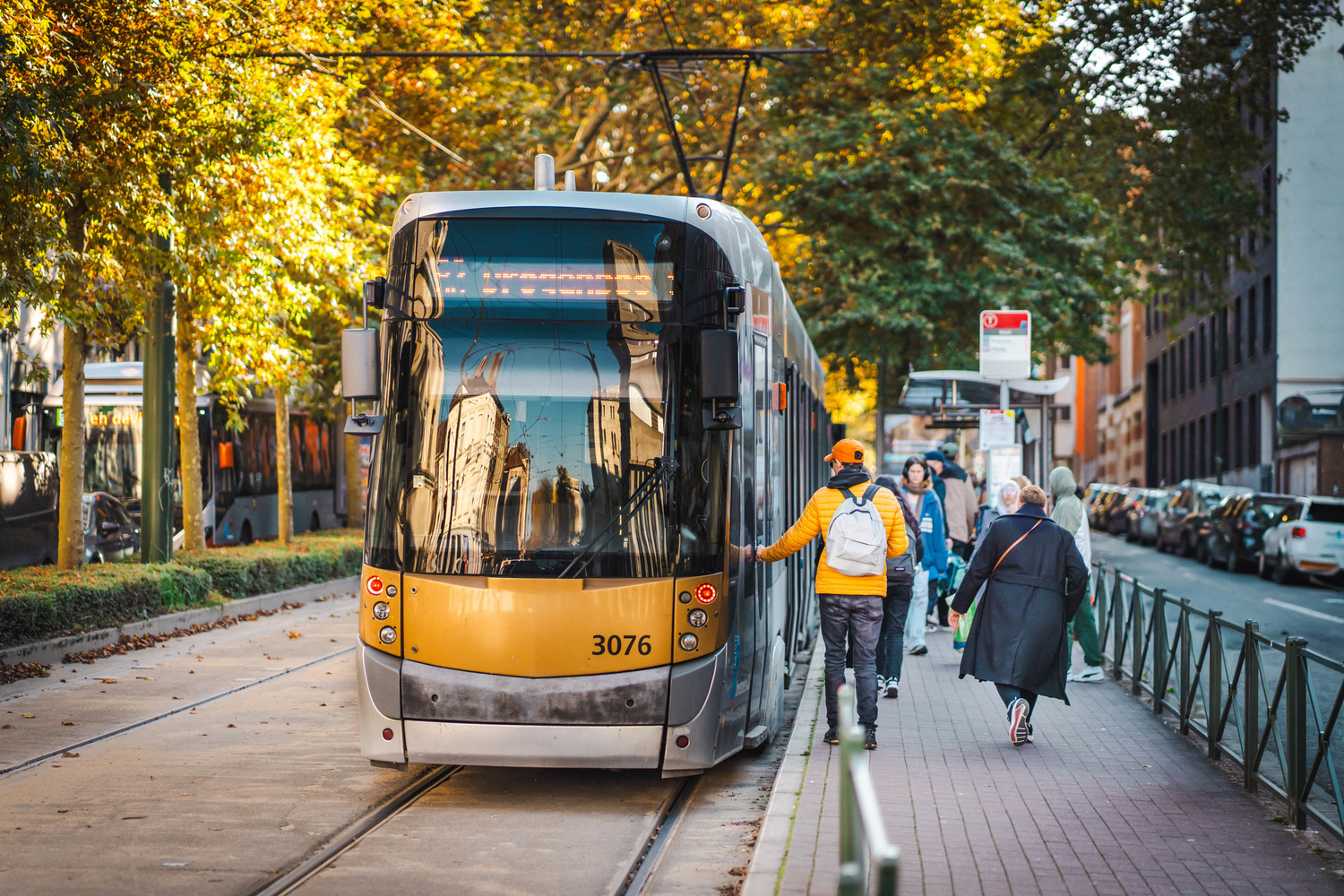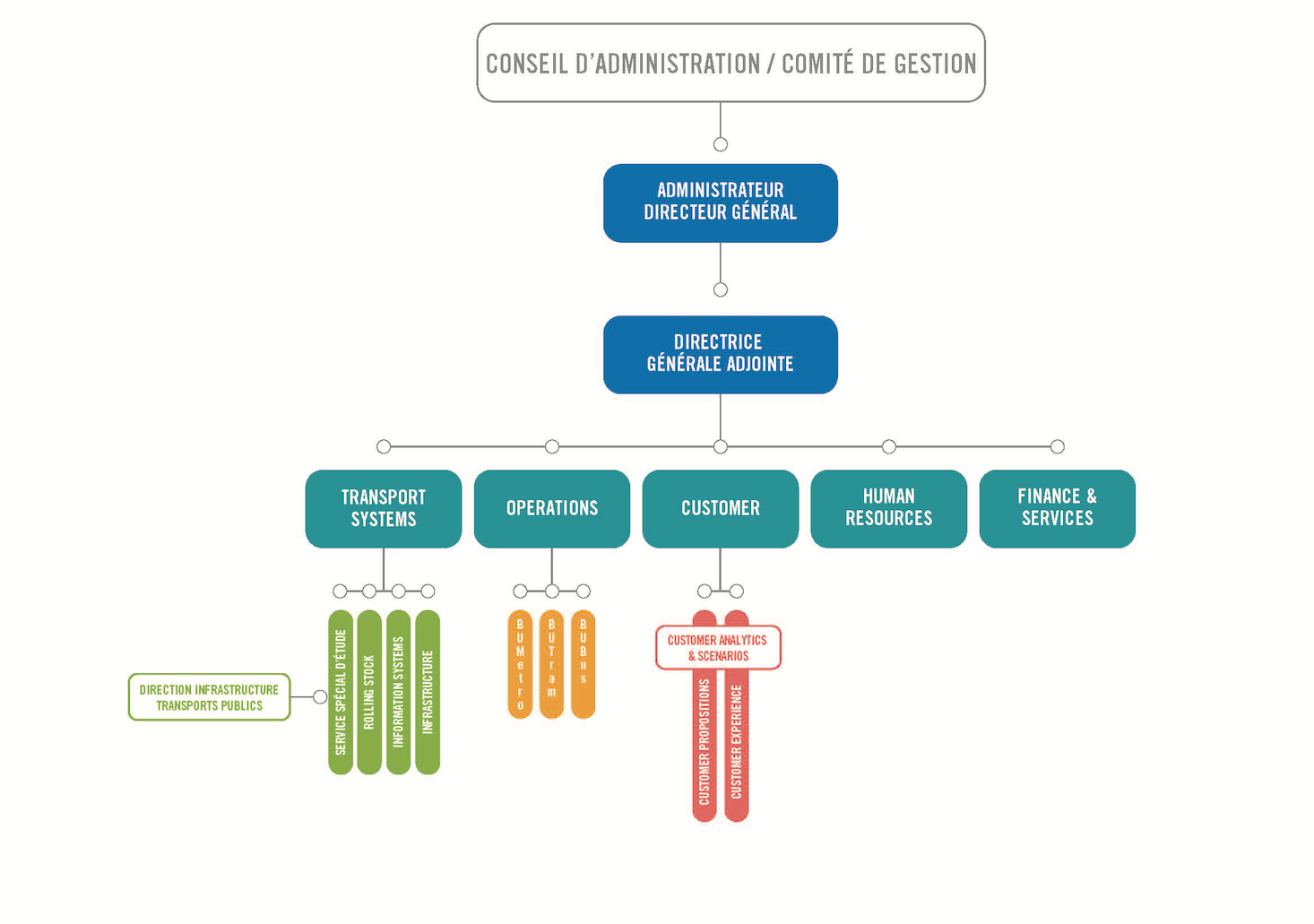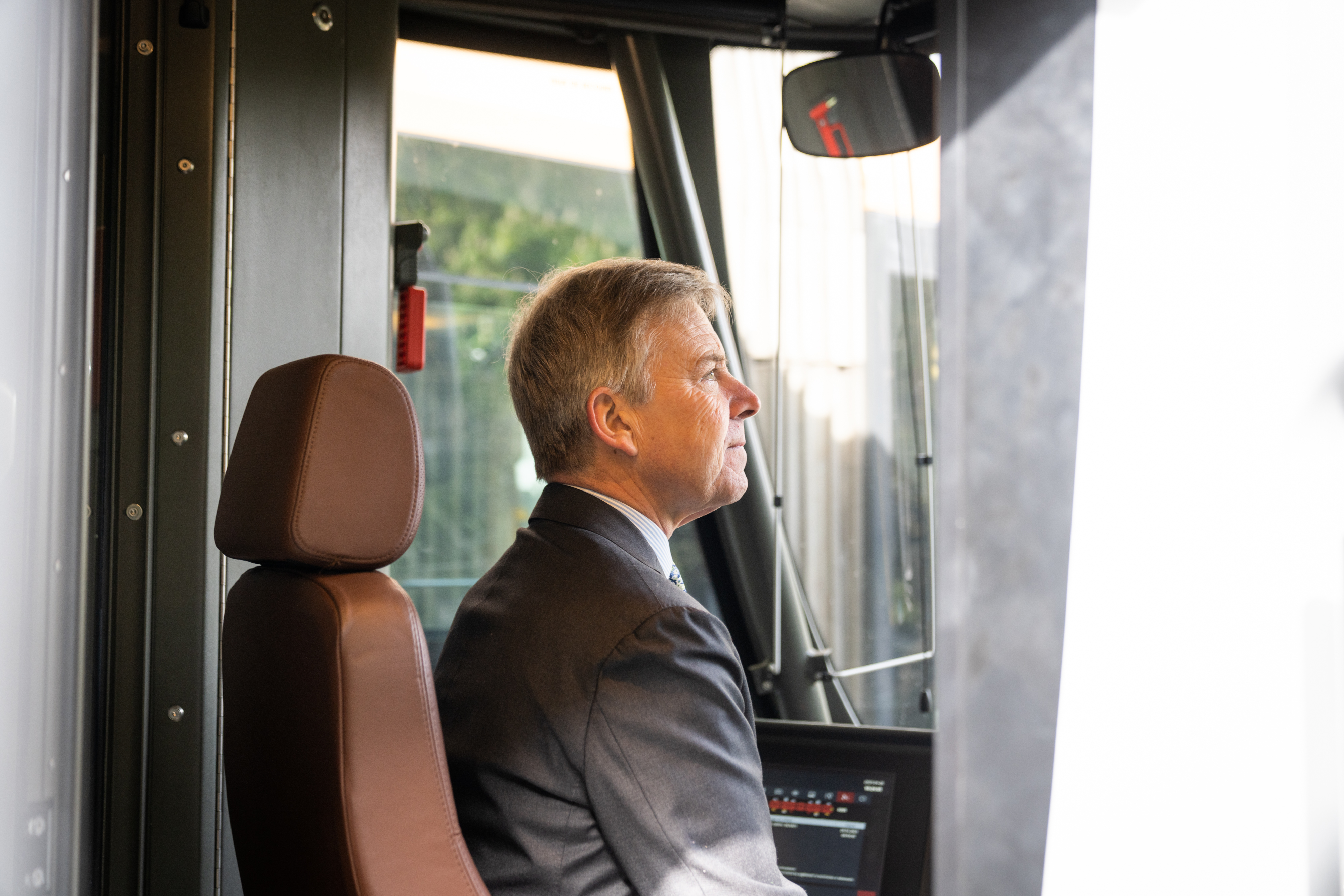Public service contract 2024-2028
Every five years, STIB and the Brussels-Capital Region draw up a public service contract. This contract sets out the roles, responsibilities, commitments and priorities of each of the parties, in favour of the development of mobility in Brussels.
Signed in December 2023, the 2024-2028 public service contract serves as a framework for STIB's public service mission. The company has begun drafting a business plan which, through concrete projects and quantified objectives, will enable it to define an action plan around which the entire company is called upon to converge.
The 2025-2029 Business Plan was prepared during the course of 2024, among other things thanks to various cross-functional workshops organised within the company. This participatory process allows for a broader appropriation of the priorities and an individual commitment from each colleague at their level of responsibility. Regular and rigorous monitoring of the plan's progress is also planned. It is expected to come into force in the course of 2025.















